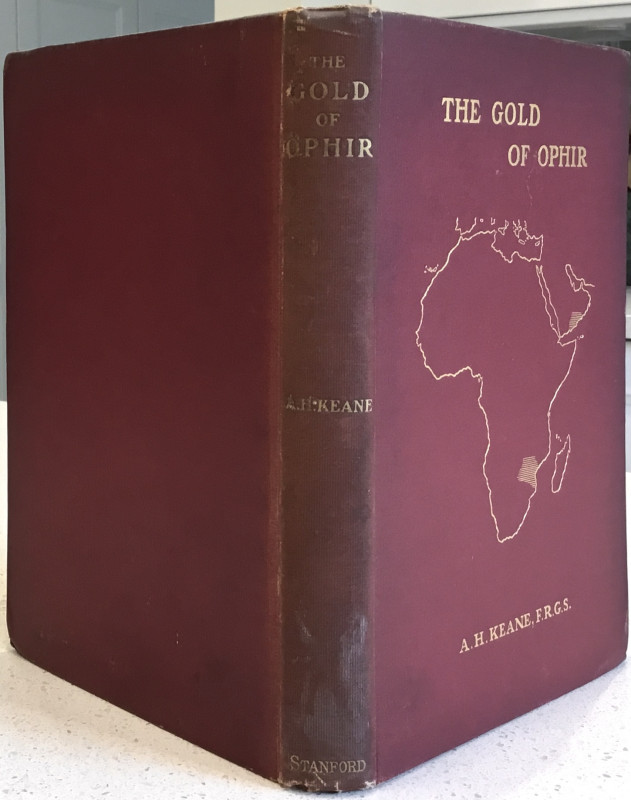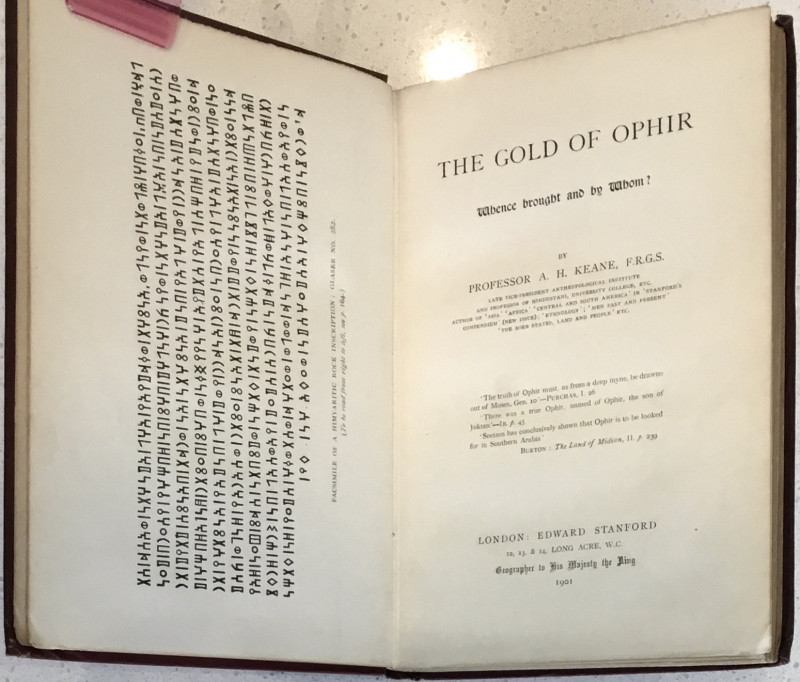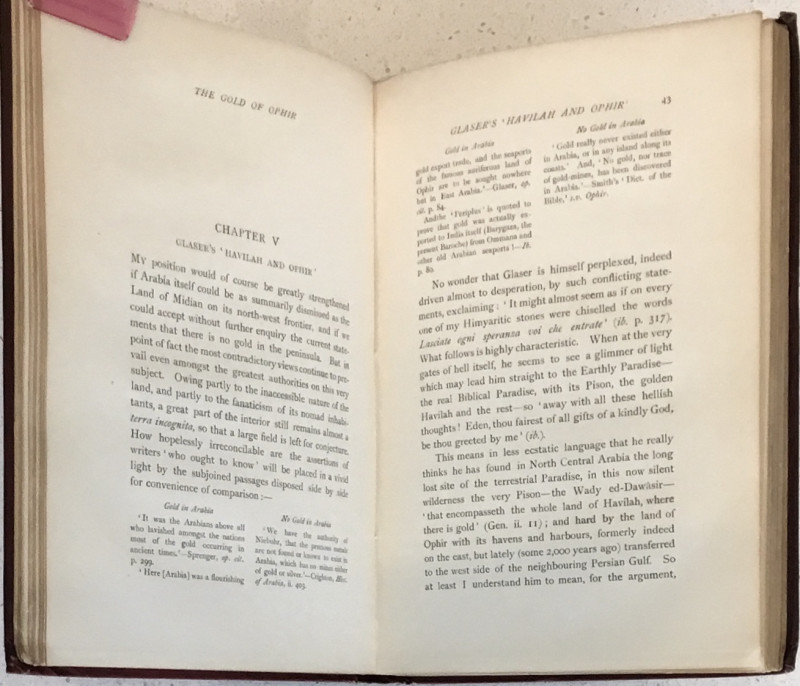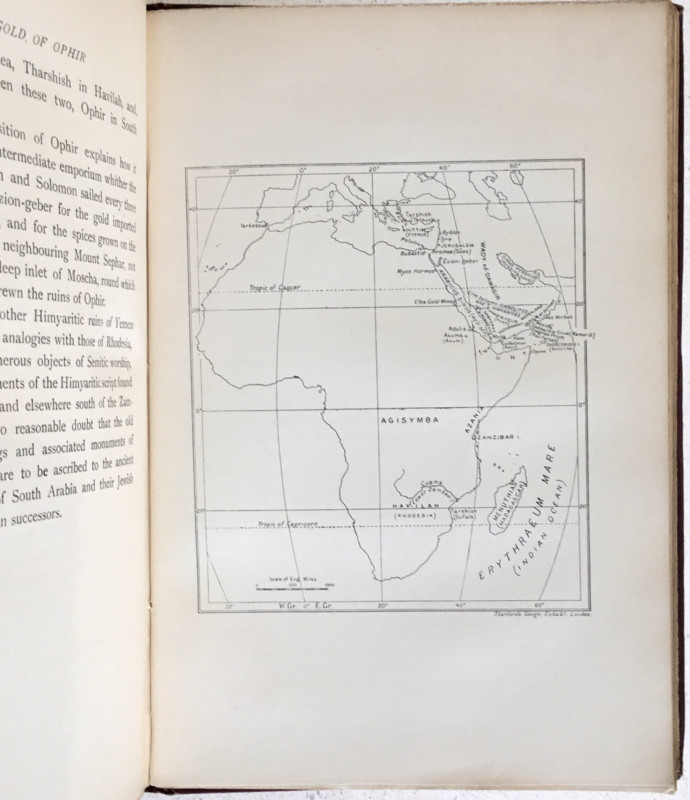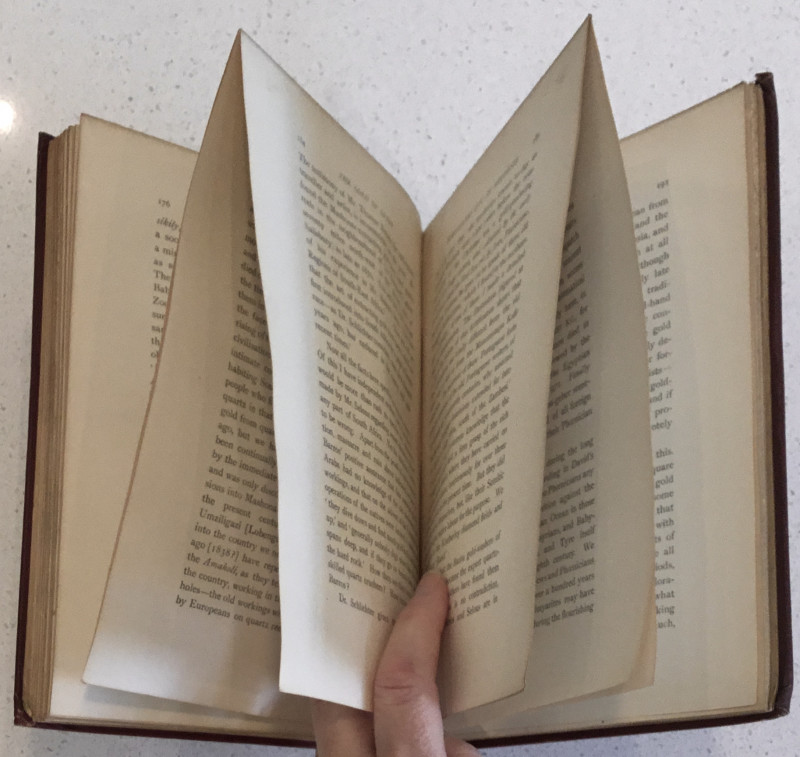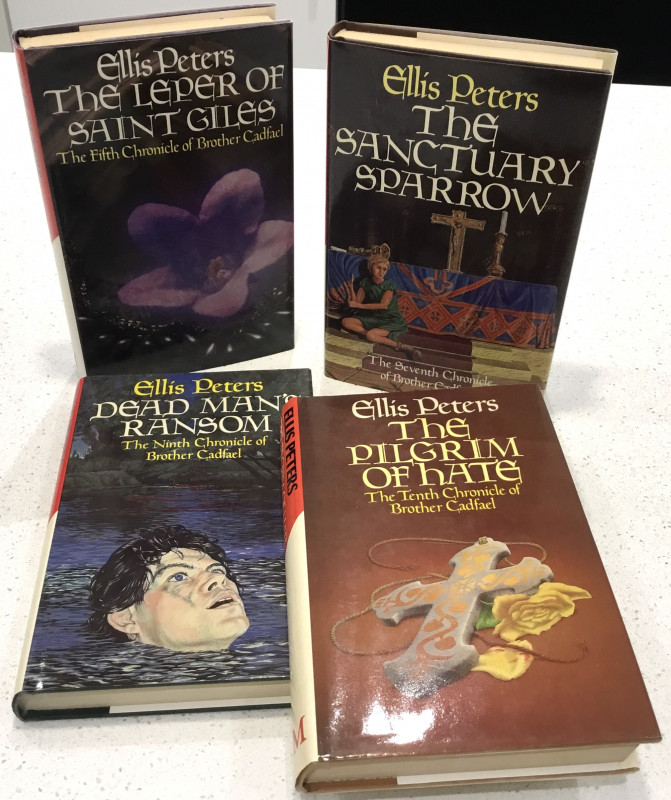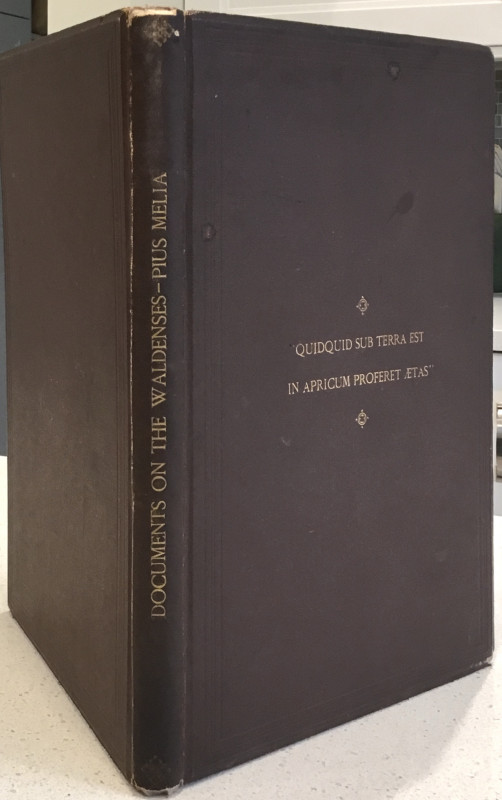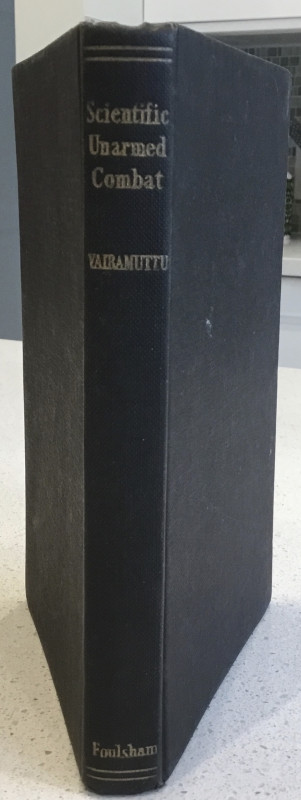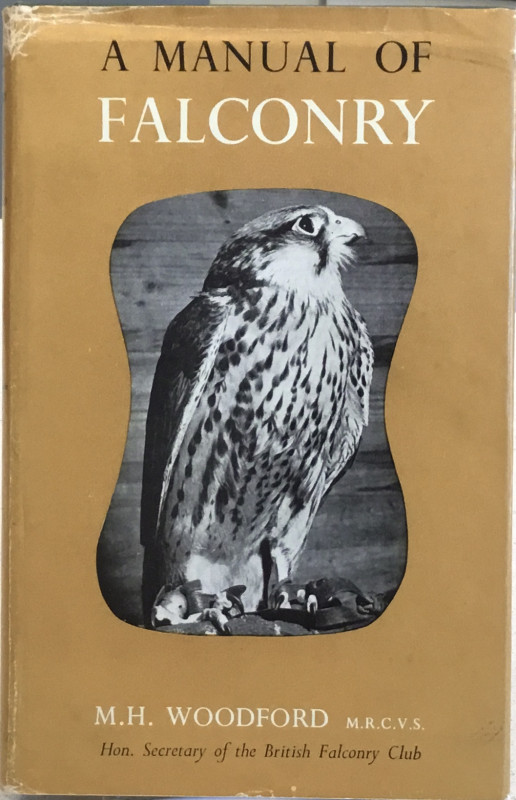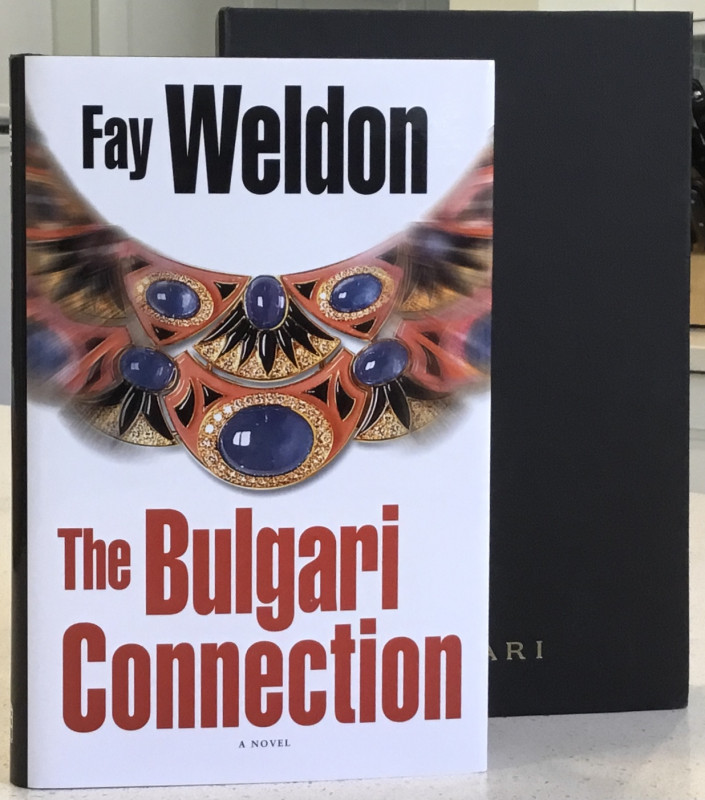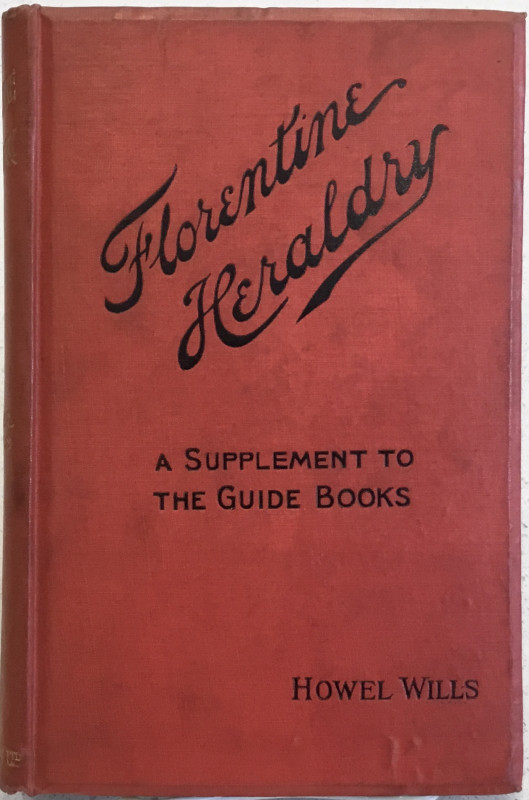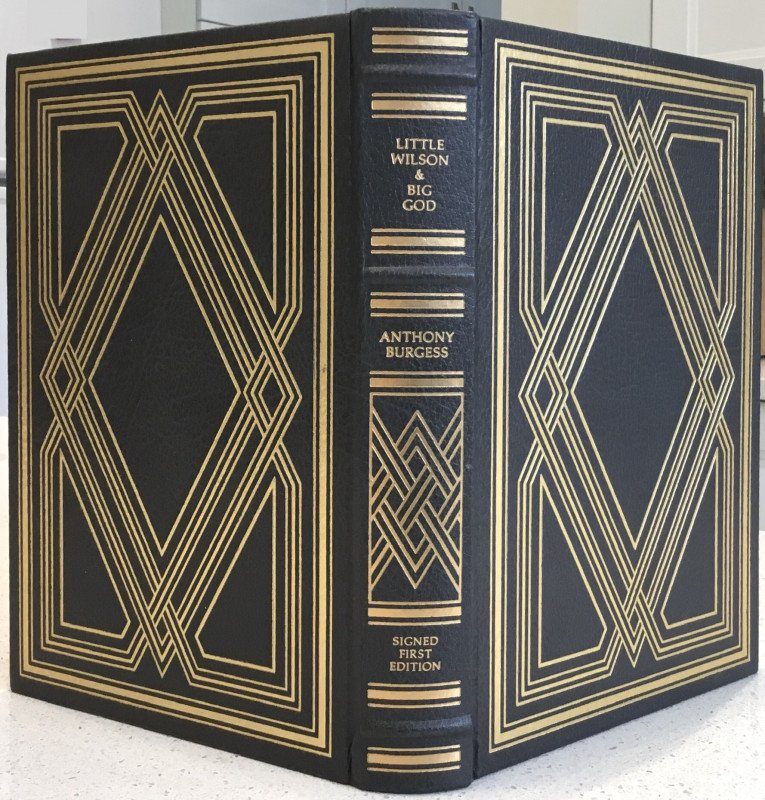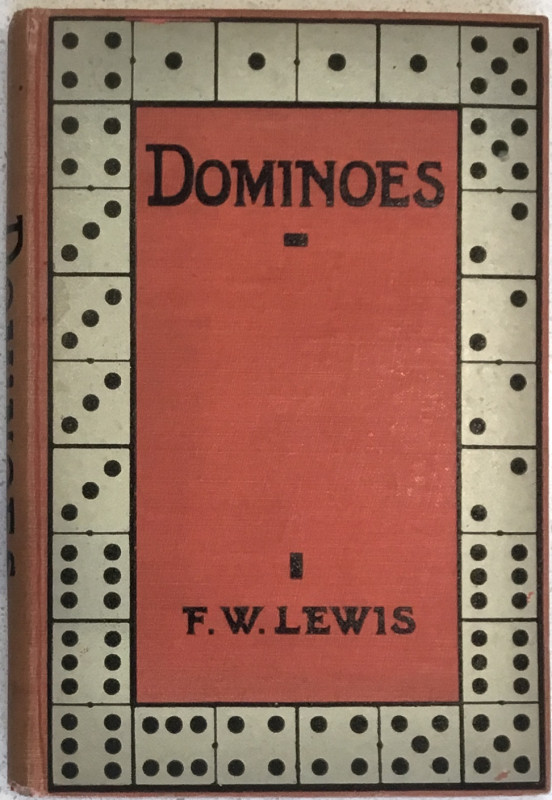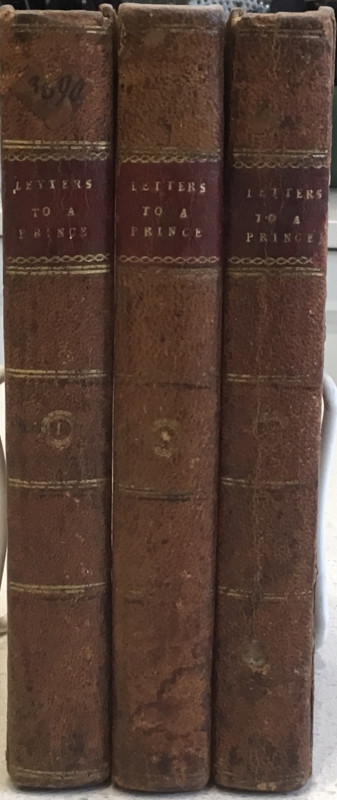The Gold of Ophir: Whence Brought and by Whom?
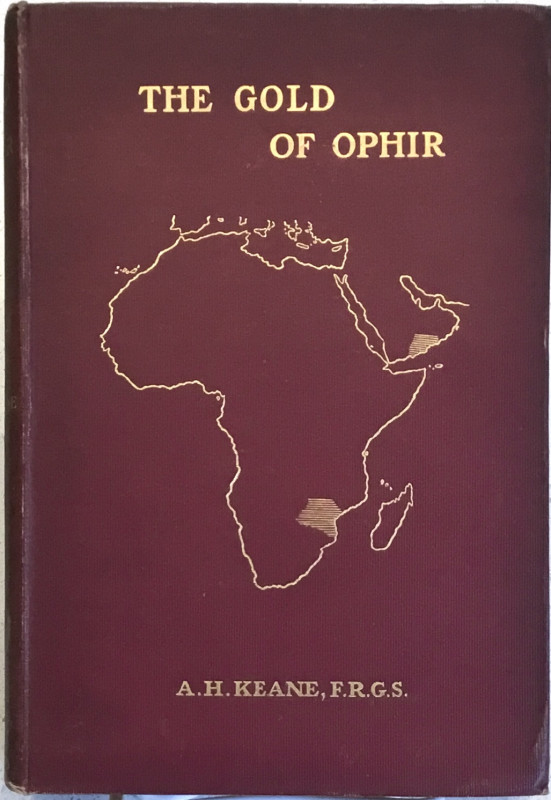

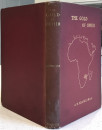
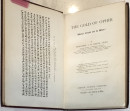
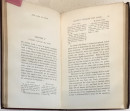
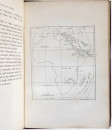
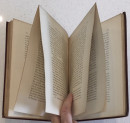
Book Description
First edition. A very good copy in publisher's original pictorial gilt burgundy cloth. Spine darkened and marked at lower portion, but gilt still bright. Corners bumped, many pages unopened; publisher’s slip (re. pricing) tipped to half-title; frontis. Contents clean and tight.
Dealer Notes
This is one of a long line of books — academic, popular and fictional — attempting to identify Ophir, the Biblical site that was the source of King Solomon’s riches. Throughout the age of European exploration and colonization, scholars, explorers and adventurers argued over the source of the gold, ivory, spices, exotic animals, jewels, etc., that were imported regularly by Solomon from ‘Ophir’. Possibilities included India, Indonesia, Peru, Ceylon, Oman, Mozambique, and ... well ... just about any exotic place one could think of. Books like Haggard’s ‘King Solomon’s Mines’ put it in southern Africa; others tried to put it wherever gold was discovered.
The author’s thesis was based on his reading of recent archeological discoveries, comparative philology (the study of historic languages), and analysis of the biblical evidence. It led him to the conclusion that the fabled ‘Ophir’ was not the source of the wealth as most scholars presumed, but rather that it was a port on the southern coast of Arabia that served as a gathering and trans-shipment point for rich goods from Africa, Arabia, and other locales. His conclusions are tainted by the idea that ‘superior’ peoples set up trading colonies amid, and influenced the cultures, of ‘inferior’ ones.
The author’s thesis was based on his reading of recent archeological discoveries, comparative philology (the study of historic languages), and analysis of the biblical evidence. It led him to the conclusion that the fabled ‘Ophir’ was not the source of the wealth as most scholars presumed, but rather that it was a port on the southern coast of Arabia that served as a gathering and trans-shipment point for rich goods from Africa, Arabia, and other locales. His conclusions are tainted by the idea that ‘superior’ peoples set up trading colonies amid, and influenced the cultures, of ‘inferior’ ones.
Author
Augustus Henry Keane, F.R.G.S.
Date
1901
Binding
Original cloth
Publisher
London: Edward Stanford
Condition
Very good
Pages
244
Friends of the PBFA
For £10 get free entry to our fairs, updates from the PBFA and more.
Please email info@pbfa.org for more information
